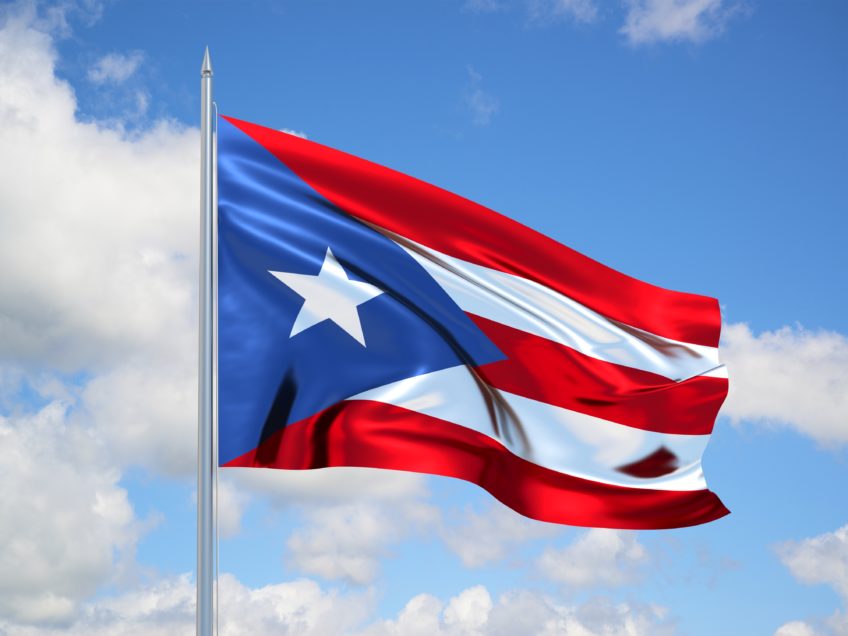Is There Another Star in the Flag’s Future?
Puerto Ricans voted in a non-binding referendum earlier this month on whether the island should remain a U.S. territory, become a state or press for independence. Because of calls by the two main opposition parties (one committed to continued commonwealth status and one to Puerto Rican independence) to boycott the plebiscite, only 23 percent of Puerto Ricans turned out to vote. Even so, of those who voted, 97 percent voted in favor of statehood.
The push for Puerto Rican statehood is largely the result of the island’s anemic economy and massive debts. Puerto Rico is $74 billion in debt and if admitted to the Union would be the poorest state in the country. Puerto Rico’s unemployment rate is more than 12 percent. The territory’s population has dropped by 10 percent in the past decade, as Puerto Ricans flee to the mainland in search of jobs and better economic prospects. Pension funds are drying up, as Puerto Rico faces $49 billion in pensions that it cannot pay. Overregulation is partly to blame for Puerto Rico’s economic decline over the past decade, with restrictive labor laws (including mandatory Christmas bonuses) encumbering businesses. Further, unwieldy and expensive Puerto Rican government programs are financed by ever increasing local taxes, placing greater economic burdens on Puerto Rican families.
In addition to the economic challenges the territory faces, many Puerto Ricans voted for statehood because they see the island’s commonwealth status as de facto second class citizenship. Currently, the island’s residents have U.S. citizenship but have only one non-voting representative in Congress and cannot vote in presidential elections. Puerto Ricans are exempt from the federal income tax but still contribute to Social Security and Medicare. However, they receive less federal grant money than states.
Some in Puerto Rico believe that statehood could solve several of these problems. Statehood would reduce the cost of living on the island, and federal grant money could help pay for Puerto Rico’s unfunded governmental programs. Some worry about the effects of the federal income tax on the island if it is granted statehood, claiming that it would only make the dire economic situation worse. However, the Earned Income Tax Credit would likely offset the income tax payments.
Congress must approve Puerto Rico’s application for statehood, which seems unlikely. Under the New States clause in the Constitution, a bill must be passed in Congress to admit Puerto Rico. This may be difficult, since Puerto Rico’s only Congressional representative cannot vote. Many Americans believe that Puerto Rico as a state would be a drain on national resources, while contributing little to the economy. Adding Puerto Rico to the Union would add two senators and five representatives to Congress, and many believe they would align with Democrats leaving a Republican-controlled Congress with little political incentive to support Puerto Rican statehood.
In reality, Puerto Rican statehood would provide income taxes from the nearly 3.5 million people on the island who are currently exempt, more than making up for the increased federal grants the young state would be eligible to receive. Moreover, Puerto Rico is contested by three political parties, none of which are Democrats or Republicans. A 2014 poll showed that, although a plurality of Puerto Ricans living in Florida were Democrats, most were also socially conservative. Puerto Rico could be hotly contested political ground.
If Puerto Rico becomes the fifty-first state in the Union, Puerto Ricans will still face many difficulties, chief among them overregulation, a debt crisis and profligate government spending. However, admitting Puerto Rico as a state would be mutually beneficial for both the United States government and the Puerto Rican people—not to mention that it would add another star to the flag.
The views expressed in this article are those of a subject matter expert and do not necessarily reflect model policies adopted by the American Legislative Exchange Council.

